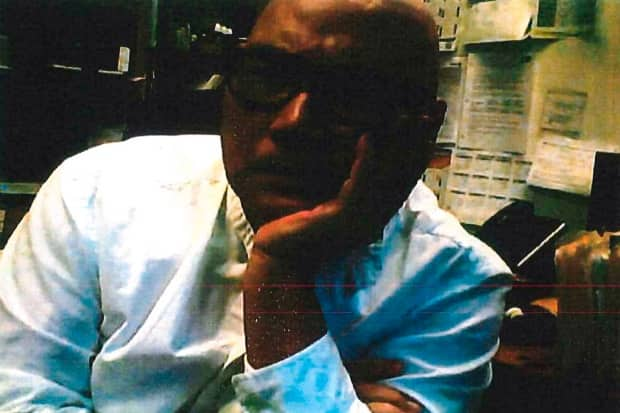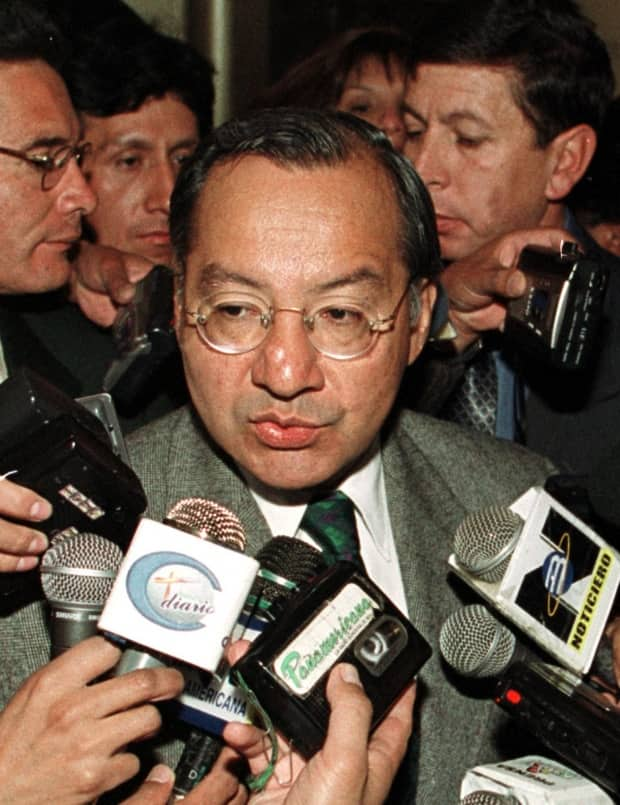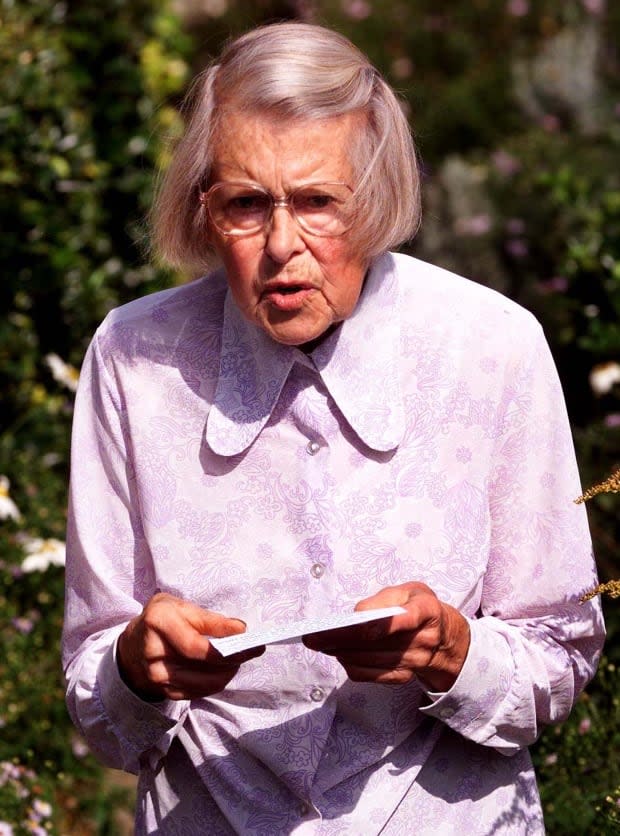Unmasking of elderly U.S. spies shows there's no age limit on getting busted
The United States has busted some spies lately who are old enough to qualify for retirement benefits.
U.S. prosecutors recently announced a guilty plea from Alexander Yuk Ching Ma, a septuagenarian former Central Intelligence Agency (CIA) employee who admitted to passing defence information to China.
That came a few months after Victor Manuel Rocha — a 73-year-old former U.S. ambassador — admitted to having acted as a long-term secret agent for Cuba.
Both cases involved elder baby boomers revealed to have done covert work for foreign powers years earlier.
Detecting hostile spies is a tricky business and can be a years-long process. But these cases — and others that came before them — demonstrate that in America, there's no age limit on being held accountable for spying.
"There's no statute of limitations for espionage," confirms Pete Lapp, a retired FBI agent whose book Queen of Cuba details the investigation into Ana Belén Montes, a defence analyst who spied for Havana for over 17 years.
A long surveillance
Ma worked for the CIA during the 1980s, but it was his post-agency life that caught authorities' attention.

Prosecutors say that back in 2001, Ma and an older relative — a fellow former CIA employee who has since died — accepted $50,000 US in cash for passing classified defence information to Chinese intelligence contacts.
Ma later sought a job with the FBI to "give himself access to U.S. government information," according to the criminal complaint filed against him. But prosecutors say he was allowed to be hired there so he could be watched. For unstated reasons, he wasn't arrested until 2020.
Ma, who is in his early 70s and lives in Honolulu, appears set to serve a 10-year sentence under a proposed plea deal.
The U.S. Attorney's Office in the District of Hawaii didn't respond to an email inquiry about how age may factor into Ma's sentencing. But Justice Department officials previously signalled their determination to vigorously pursue any such cases, even if transgressions occurred long ago.
"Let it be known that anyone who violates a position of trust to betray the United States will face justice, no matter how many years it takes to bring their crimes to light," Alan E. Kohler Jr., a senior FBI counterintelligence official, said at the time of Ma's arrest.
Aging spies behind bars
Just three per cent of America's federal prison population is 65 or older, according to U.S. Federal Bureau of Prison statistics.
These include some caught-and-convicted spies, now among them being Rocha, who is starting a 15-year sentence.
Walter Kendall Myers, 87, is serving a life sentence for offences relating to spying for Cuba. The former U.S. State Department official has spent the majority of his retirement years behind bars, after being arrested in 2009.
WATCH | Aldrich Ames's arrest 30 years ago:
There are also other spies growing old in U.S. prisons — octogenarian Aldrich Ames, for one — who were caught at younger ages, but who are spending their golden years imprisoned.
Kevin Patrick Mallory, a 67-year-old former CIA spy, is serving a 20-year sentence for passing secrets to China. He'd faced a life sentence, but a federal judge deemed that too harsh.
How identities can become known
Jack Barsky spent a decade spying for the Soviet Union, starting in the 1970s. He later cut ties with that life, but the former KGB agent has stayed in the U.S., where he lives today.
He sees three main ways a spy's activities might be discovered.
One scenario is that a person turns themselves in.
Another possibility is betrayal, which Barsky knows well: In 1992, a KGB archivist named Vasili Nikitich Mitrokhin defected to the West, bringing volumes of information that included details about Barsky's existence.
A third possibility is what Barsky says amounts to a carelessness that emerges with time, which could expose long-serving spies to a risk of being identified.
"The longer somebody operates in this field, the more [there is] a tendency to get sloppy," said Barsky, who admits that even he eventually cut corners on some of the time-consuming tradecraft involved with sending messages back to Moscow.

Rocha seems to have considered similar risks up until his arrest. According to court documents, he told an undercover FBI agent that "the only thing that can put what we have done in danger ... is someone's betrayal."
Lapp, the former FBI spy catcher, sees a characteristic that Rocha and many other spies share — a naiveté that they won't get caught.
"I think you could argue committing espionage is pretty naive," said Lapp, noting participants in these crimes are either ignoring or minimizing the consequences of what they are doing.
In terms of how they typically get discovered, Lapp said there's a saying that explains it: "Spies catch spies."
Leaving the past behind
Across the pond, Britain has seen some headline-making spy scandals over the years — including one involving a retired secretary nearly 25 years ago.

In September 1999, Melita Norwood, an 87-year-old pensioner and communist sympathizer, was publicly revealed to have spied for the Soviets for 40 years.
"I thought perhaps what I had access to might be useful in helping Russia to keep abreast of Britain, America and Germany," she told reporters when the news broke. "In general, I do not agree with spying against one's country.''
Norwood was not prosecuted, in a controversial decision that drew criticism.
Her outing as a spy came as a result of the same trove of information that Mitrokhin — the KGB archivist whose disclosures led to Barsky's detection by U.S. authorities — brought to the West.
Barsky, for his part, co-operated with American authorities, who approached him a few years after the Mitrokhin disclosures.
But Barksy admits that "if I had not been betrayed by that archivist, I probably wouldn't be talking to you today."

